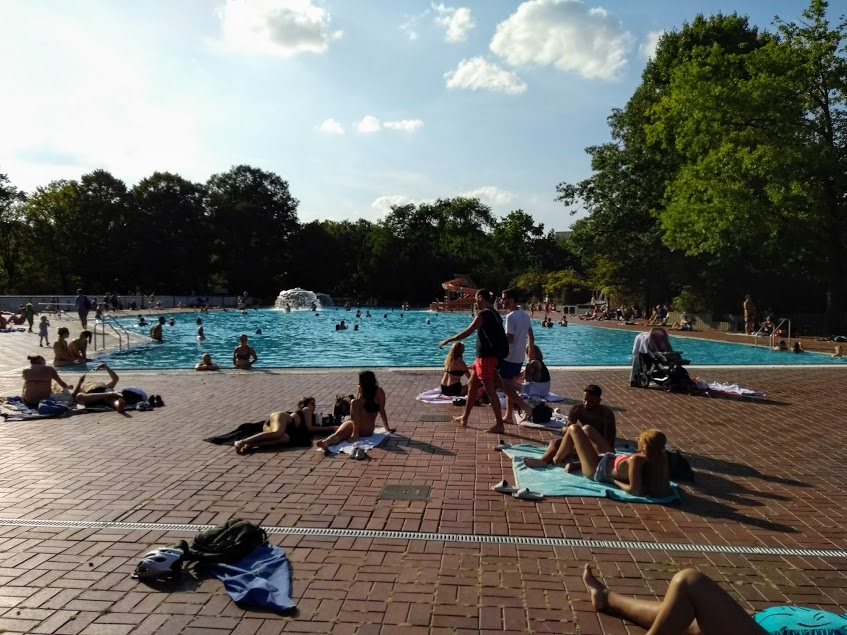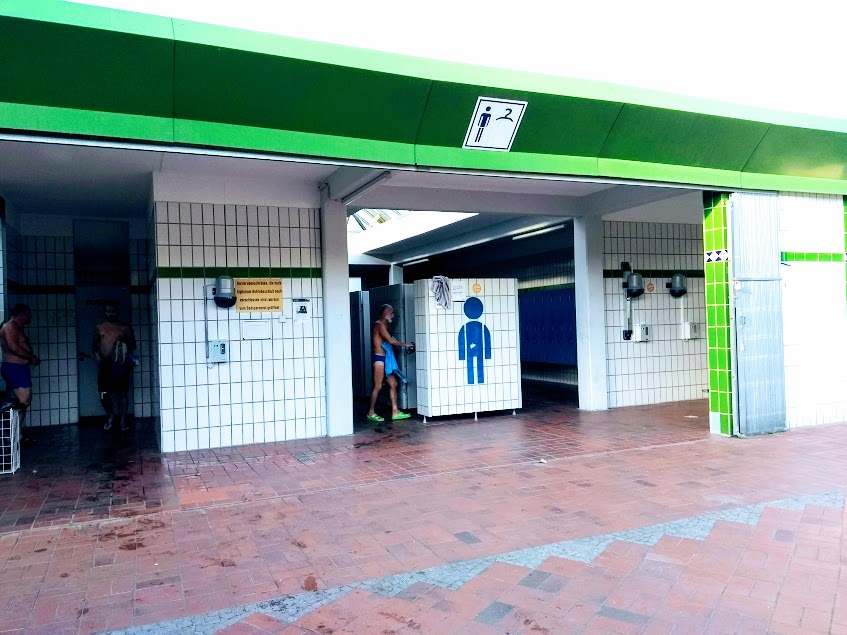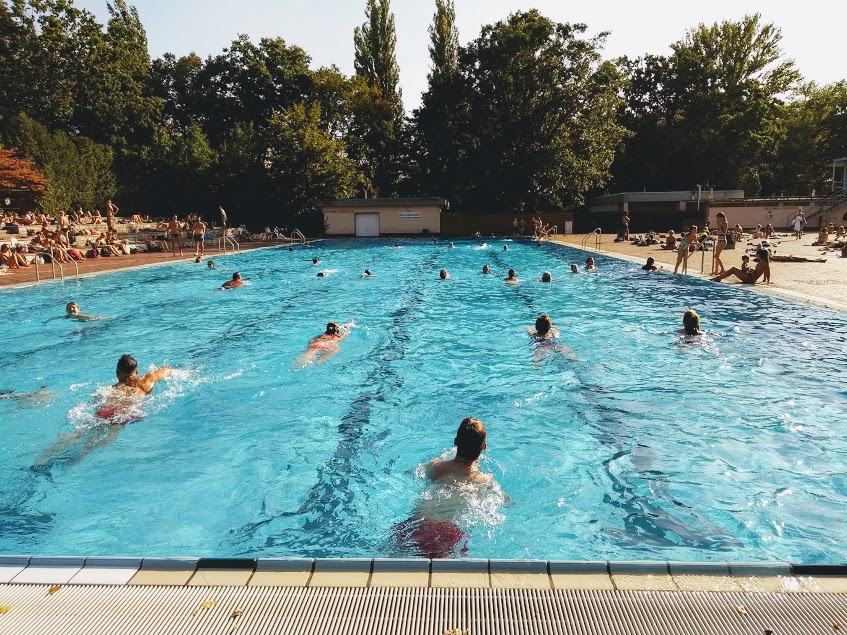Swimming in Public, Reflecting on Summer
It feels like the last day of summer because the Kreuzberg Prinzenbad summer pool––one of the many Sommerbäder around the German capital––is closing for the season. It’s nonetheless a hot day for late September, and really the pool could stay open just a few weeks longer. I imagine creeping over the fence into the sprawling grounds, but I suspect they drain the water.
I have a savers card, and have almost a dozen entries left on it. I didn’t come to the pool nearly enough this summer, and––look––now it’s closing! No matter. I stand by the turnstile and let people in for free, and hope for some good karma in return. I hope to see some of them again. But there are just so many people in this pool complex, with its Berlin-scale spaciousness, so we all lose each other once we get our feet wet.
The facilities are kind of old-fashioned, utilitarian, tiled, but clean. There are signs of Berlin’s politics: a rainbow flag and intersex / trans changing rooms. A gaggle of men check out the bare-chested husbands with their veiled wives. Gangs of children occupy the steps up to the canteen, with its umbrellas, plastic chairs, and smell of grease––and I suddenly recall the taste of pickles and mustard being closely associated with summer chlorine. What will be their madeleine? Ketchup and mayonnaise? The press sometimes remark on the bad behaviour of these kids, but here they seem in line. Around the pools, it’s clear many people come not even to swim, but to lounge, read, sunbathe, and eat chips and beer without ever going into the water.
But beyond the lounging areas, you can swim. A sports pool is at the back, for those professional at doing lengths. People here are the serious ones: they swim quickly and orderly. And then there’s the pool for kids and families, with fountains and a waterslide to the right. I am squeamish. I always imagine an elevated percentage of pee. But then there’s the pool at the front where you can choose to be serious or relaxed, and I think it’s the most interesting part of the complex.
At one end of it is a deep diving area: ‘Sprungbecke’, but the only ones ‘sprunging’ are the many acorns that plunge into the deep pool from an overhanging autumnal tree. The bottom of the pool is covered with these divers. At the other end, there are the people exercising, but in a haphazard way. Swimmers just set off and try to avoid each other at their own pace. You would think people going any which way they like––with no formal lanes or rules for direction––would collide, that there would be mayhem. It would certainly be very frustrating if you slipped in with the expectation that people kept to their lanes––like in aggressive North American pools where people scrape at your feet to indicate how slow you are going. But strangely, here, there are no big disasters. Here you lazily go around each other and zigzag your way.
There are all kinds swimming: barely moving elderly women, nearly beached obese men, and then sleek younger guys tacking their way across the waters. It seems a metaphor for social democracy: everyone going their own speed, everyone accommodated. I can’t help but extrapolate from this respect of shared space, because we manage to coexist without much unwanted touching or colliding or excess competition. And then it’s civil and not angry if you bump into someone. The necessary patience––once you get used to it––makes the entire experience of swimming in fact much more enjoyable. I wish bikers and drivers were so nice in Berlin.
Afterwards, once we have changed out of our suits and the air turns cooler, we leave the Sommerbad’s gates. Strange, you don’t see a soul you know inside, and then, once you’re outside, you run into everyone you know also catching the last of summer, and now picking up their bikes from the hundreds parked next to the U-Bahn station. What is it about Berliners and their waters, their classic downtime? It’s like People on Sunday; it’s where you learn to stop the clock, by a pool or a lake. Prinzenbad is maybe the lazy man’s lake. No wonder every club kid is here.
As I get on my bike and ride into the autumnal streets, I think back on someone I saw in the pool: a man in a red Adidas bathing suit whom I passed three times. At least, I think he was the same person. The first time I swam past him, he was a wrinkled old man who seemed to be treading water rather than doing breaststroke. Then ten minutes later, I overtook him again, but somehow he was only middle-aged, and doing front crawl. It was only when I was about ready to get out, that I encountered him a final time, in that same red bathing slip, as a young man: well-cut, coasting past me towards the edge.
It won’t be soon enough for winter to be over and for the pool to re-open.




